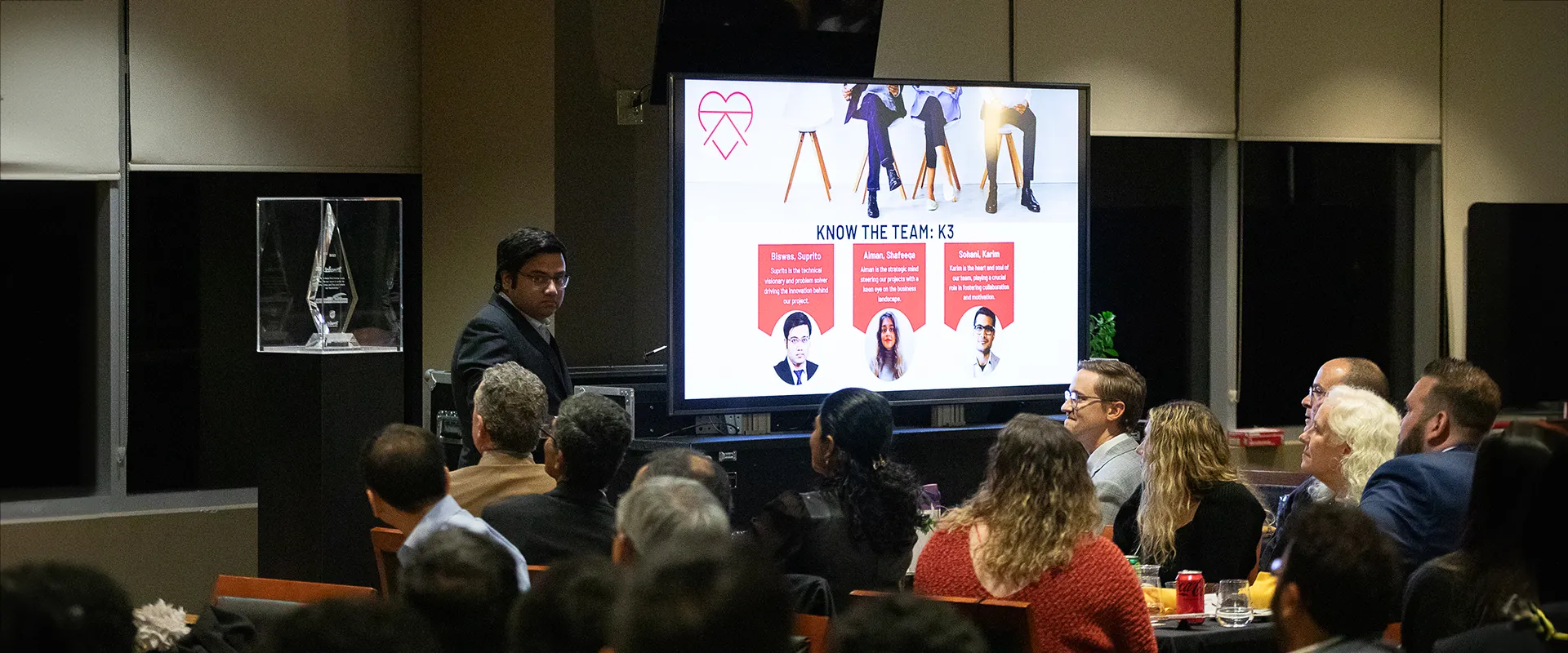
11-03-2023
More than just a buzzword, Experiential learning emphasizes hands-on learning and practical experiences as a crucial component of the learning process. This approach contrasts with more traditional, lecture-based learning, as it encourages students to apply their theoretical knowledge through problem-solving, critical thinking and reflection on the experience. In experiential learning activities, students apply the subject matter, concepts and skills outside of the classroom through participating in real-world activities, projects or experiments.
Experiential learning consists of several important elements:
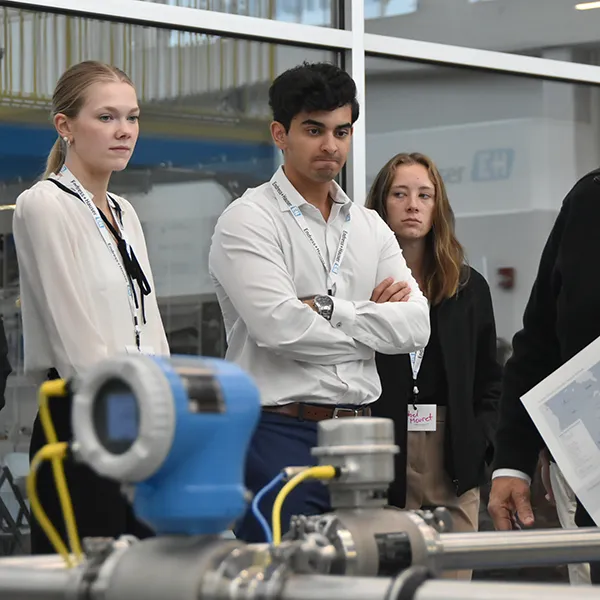
At Purdue’s Daniels School of Business, students have diverse opportunities for experiential learning. Depending on their program, they may participate in case competitions, consulting projects with partner businesses and entrepreneurship workshops. Each hands-on experience activates and transcends classroom knowledge. For instance, in the entrepreneurship workshops, students create their own business plans, pitch their ideas to potential investors, and even launch their own ventures.
After these real-world experiences, students reflect and connect their actions with other bodies of knowledge, making their understanding richer. For example, the Daniels School of Business offers a Global Business Experience program where students travel abroad to work on consulting projects for international clients. After the trip, students reflect on their experiences, considering the global business challenges they encountered and how their coursework prepared them to address these issues.
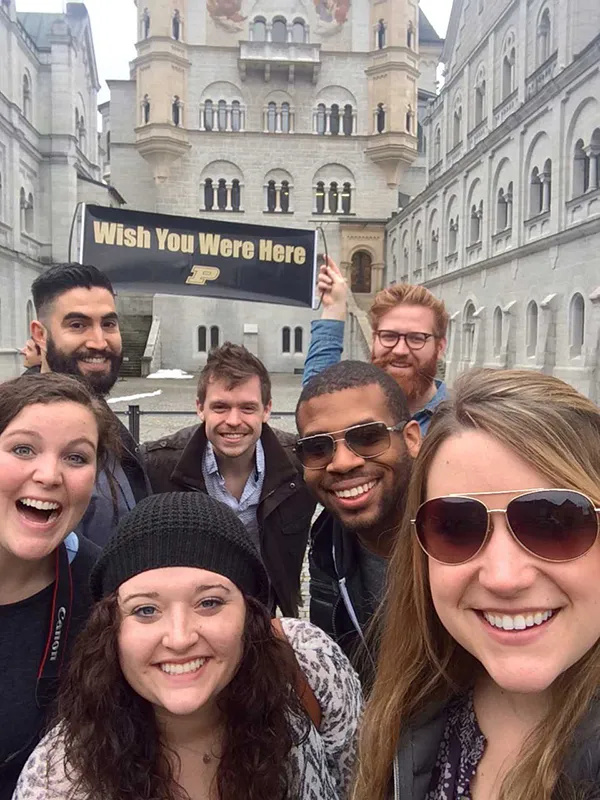
Experiential learning is about using what you've learned to approach your professional responsibilities with confidence and accuracy. You gain skills you can use in your job life right away. For instance, at the Daniels School of Business, marketing students study consumer behavior and marketing. They often conduct real-world consumer surveys and analyze market data. This knowledge can be directly applied by businesses to enhance their marketing strategies and product development.
Facing nuanced challenges and problems too complex for a case study discussion or textbook helps students become better at dealing with unexpected situations. That’s the advantage of incorporating case competitions. The Daniels School of Business frequently hosts case competitions, where students are presented with business challenges and must develop innovative solutions. Teams of students pitch their proposed solutions to panels of judges.
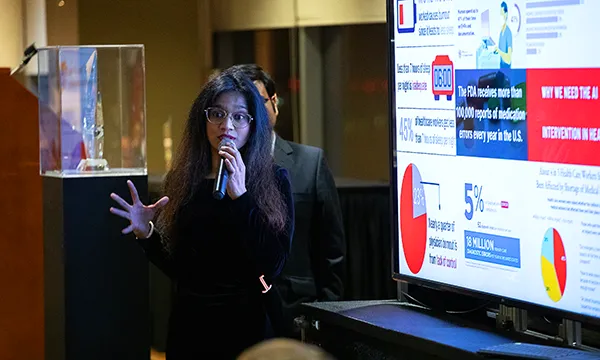
Often, you work with other people like your peers, mentors or experts. You learn from them and with them. "The Daniels School of Business places a strong emphasis on fostering collaboration and teamwork. My participation in group projects and involvement in team-based activities has imparted a deep appreciation for the importance of diverse perspectives and effective communication. These interpersonal skills are invaluable, and I firmly believe they will serve as assets in my future career, where teamwork and cooperation often form the bedrock of success," says Swasti Jain, MS Finance ’23.
Experiential learning isn't just about facts; it's about personal growth. You become more confident, adaptable and open to different cultures and ideas because you are conceptualizing, a phase of experiential learning where you consider prior experiences and how you've built upon those. When you connect your experience to other cultures and ideas from other classes, you will not only be trained to conceptualize, you will also confidently and actively experiment to innovate.
The experiential learning courses at the Daniels School of Business provide graduate students at Purdue University are designed to address significant issues and challenges, enabling students to apply and integrate the knowledge and skills they've acquired during their academic studies.
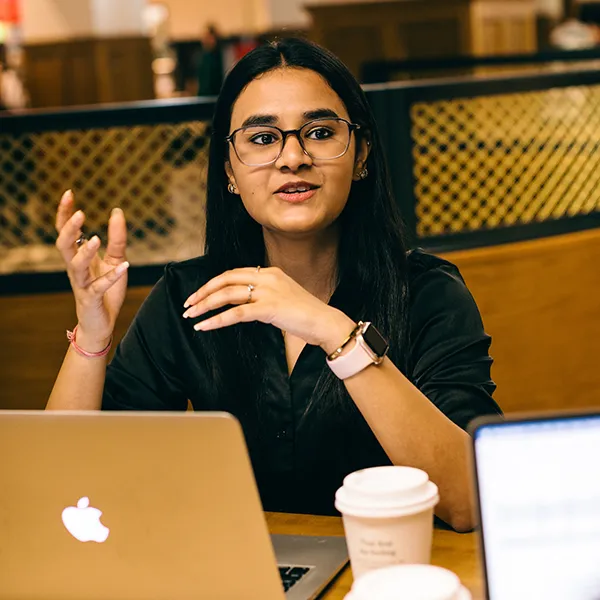
In general, each program area within the Daniels School of Business offers a semester-long experiential learning course that aligns with specific program goals. These courses are thoughtfully structured to connect student teams with projects sponsored by various companies.
Isabel Lins de Castro, a full-time MBA student specializing in finance and strategy, gained invaluable experience, new skills and lasting friendships through her participation in an experiential learning project. Lins de Castro's project involved crafting a strategic corporate social responsibility plan for a manufacturing organization. Her team comprised two MBA students with diverse concentrations and two master's students specializing in engineering.
As a native of Brazil, Lins de Castro acknowledges that the team's dynamics posed some initial challenges. "We originally faced discord, or as I like to call it ‘healthy conflict.’ But the disagreements we had helped in finding better solutions, and we’re now very good friends," she explains.
Participating in an experiential learning project offers students the chance to apply the skills and concepts they've acquired during their MBA coursework. For Lins de Castro, her background in finance and supply chain proved particularly useful, highlighting the significance of data segregation and analysis.
While the project involved applying knowledge from prior coursework, a substantial part of the experience revolved around personal growth and learning. Lins de Castro is determined to incorporate the insights she gained into her future career.
"I never thought about how a company can leverage the things they are doing with the community and think long-term on how they can make a profit from it. The concept has opened my eyes to think differently, and I know I can apply the idea to any other project," says Lins de Castro.
With access to numerous distinctive opportunities, Lins de Castro has maximized her MBA journey at one of the leading Midwest graduate schools. She is confident that she will enter the workforce well-prepared to make a significant impact. She emphasizes that choosing Purdue and specifically the Daniels School of Business was "the best decision of my life."
In the dynamic realm of experiential learning within the Daniels School of Business, students have a unique opportunity to thrive and develop. It's a place where education isn't limited to books and lectures. Since business and technology are closely linked, graduates need to be prepared to continuously learn to keep up with the evolution of tech. Experiential learning imprints a framework for life-long learning that gives Purdue students an edge.
If you would like to receive more information about pursuing a business master’s at the Mitch Daniels School of Business, please fill out the form and a program specialist will be in touch!